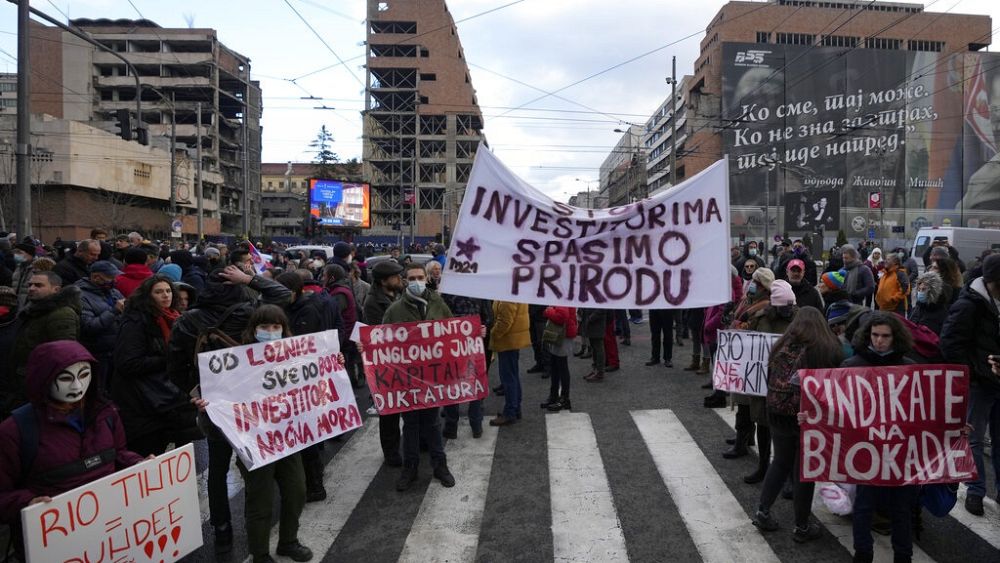
Environmental activists protested outside government offices in Belgrade on Saturday to try to stop lithium mining in western Serbia.
Last week, mining giant Rio Tinto suffered a setback in its plans to extract the metal — a vital component in electric cars, laptops, and phone batteries.
Loznica town council voted to suspend a development plan that included the mining project after protests by environmentalists across the country.
For three consecutive weekends, thousands of protesters in Belgrade and other towns across the country blocked main roads and bridges to oppose Rio Tinto’s plans in the lead-up to the vote.
The rallies were seen as the biggest challenge yet to Serbian president Aleksandar Vučić.
He has responded by saying more transparency is needed about Rio Tinto’s operations, while asking the parliament to reconsider two recent law changes that would have made it easier for Rio Tinto to begin its operations near Loznica.
Protesters say any lithium mining could inflict lasting ecological damage to rivers and farmland in the region.
Environmental groups such as Friends of the Earth say lithium extraction can harm the soil and cause air contamination.
They say it also requires a lot of water — around 500,000 gallons per tonne of lithium — which is damaging in countries that also suffer from water scarcity, such as Peru.
In a press release from November 16th, the company said the project “has the potential (…) to position Rio Tinto as the largest source of lithium supply in Europe for at least the next 15 years.”